The good folks at Ascend2, a marketing industry research firm, recently released a study on Martech Stack Optimization. It’s the kind of report that I open with the enthusiasm of that kid from the movie A Christmas Story opening the present of his dreams. (I’ll try not to shoot my eye out.)
Lots of good data points, such as 71% of participants report that they will continue to invest moderately to significantly in their martech stack this year. (Some corroboration that martech is a $121 billion industry worldwide.)
The result I found most interesting, however, was the chart at the top of this post. Participants in the study reported which capabilities they would like martech vendors to improve in order to better optimize marketing.
Are you listening, my fellow martech vendor friends? The top three:
- Ease of use (greater utilization & faster adoption by team) — by a 14-point margin!
- Integration with other technologies in the stack — what I obsess about daily
- Ability to customize technology to specific needs — paging “citizen developers”
The first — ease of use — speaks to the growing stirrings of revolution in so-called enterprise software. It reminds me of the statement Warren Tomlin made a few years ago, when he was the chief innovation officer at IBM: “The last best experience anyone has anywhere becomes the minimum expectation for the experience they want everywhere.”
Enterprise users have gotten a taste of delightful-to-use products such as Dropbox, Slack, and Zoom and have decided that — well, hey — they’d kind of like all the apps they use to be that friendly. There’s a lot of Christensen disruptive innovation happening along this usability axis in martech these days, and I believe we’ll see a lot more in 2020.
In second place? Integration with other technologies in the stack. We live in a best-of-breed cloud world, and marketers need — and now, more than ever, expect — the different tools they choose to work together.
This correlates with the data that my esteemed colleagues at MarTech Today found in their report about how and why marketers replace tools in their martech stack. “Better/easier integration” was equally as popular of a reason to switch as better features or reducing costs.
Note “better” — not just “easier” — integrations. As I wrote last year, not all integrations are created equal. Blindly tossing data, one way, over an API wall, is a far cry from support for two-way data synchronization, seamless workflow automation across apps, and embedded UI of apps within primary platforms.
Degree of integration matters, and marketers are now evaluating products on that dimension.
The third desire — the ability to customize martech products to specific needs — to me marks another inflection point in the industry. As marketing technology becomes more embedded in the end-to-end operations of a company, its full customer lifecycle, off-the-shelf playbooks and heuristics aren’t sufficient. Organizations need to bend martech products to their way of doing business, not the other way around.
This also means giving marketing technologists of all flavors — including just tech-savvy marketers — the freedom to build their own apps and automations. My claim that every marketer is now an app developer is becoming less hyperbole and more just how business runs. Note that in this Ascend2 study, the “ability to automate a process” ranked fifth on its own with 32% of marketers asking for greater flexibility there.
I also found it interesting that “use of AI and machine learning” was at the bottom of the list, with only 16% of marketers asking for more. I think there are two reasons for this:
First, AI hype in martech has crashed into the trough of disillusionment. Thank heavens.
And second, good AI and machine learning is successfully being embedded into the overall product experience of many martech tools — it’s part of delivering better usability, without having to be explicitly in your face. Subtlety is part of its achievement.
Okay, martech vendors: the market has spoken. How will you respond?
P.S. A friendly reminder that YOU ONLY HAVE ONE MORE WEEK to get the early bird “alpha” rate on tickets to the MarTech Conference in San Jose, April 15-17. Check out the agenda of the amazing speakers and sessions that we’ll have. If you want the ground truth of martech and how to maximize its impact in your organization, this is the springtime event you won’t want to miss.
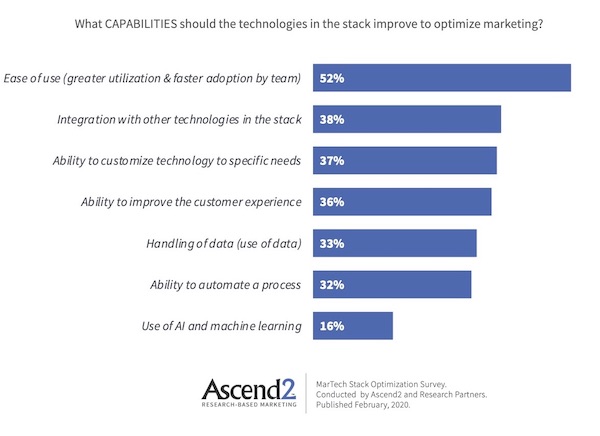
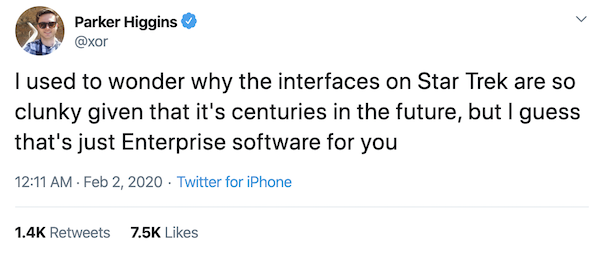
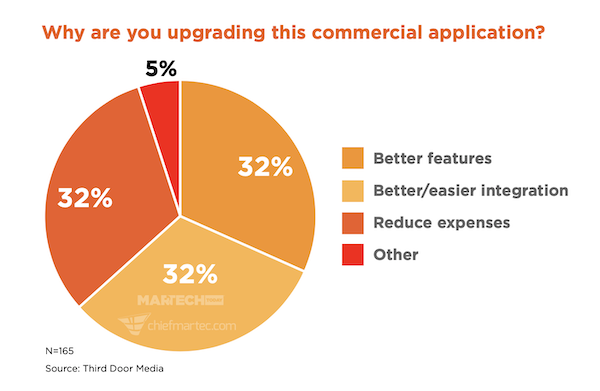
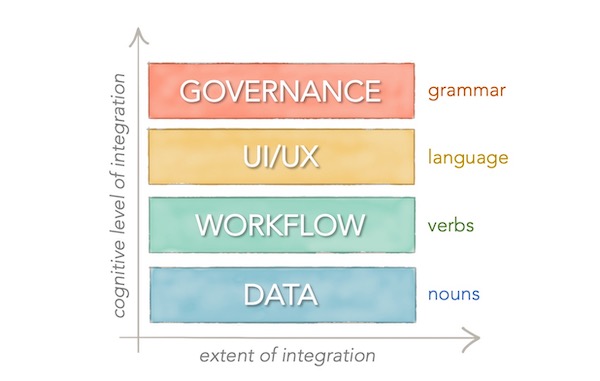
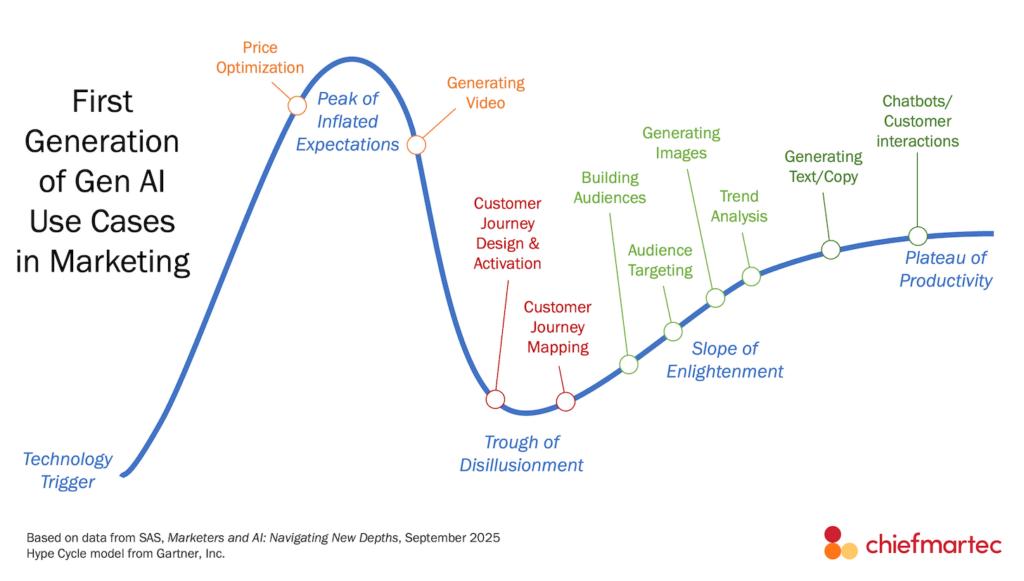
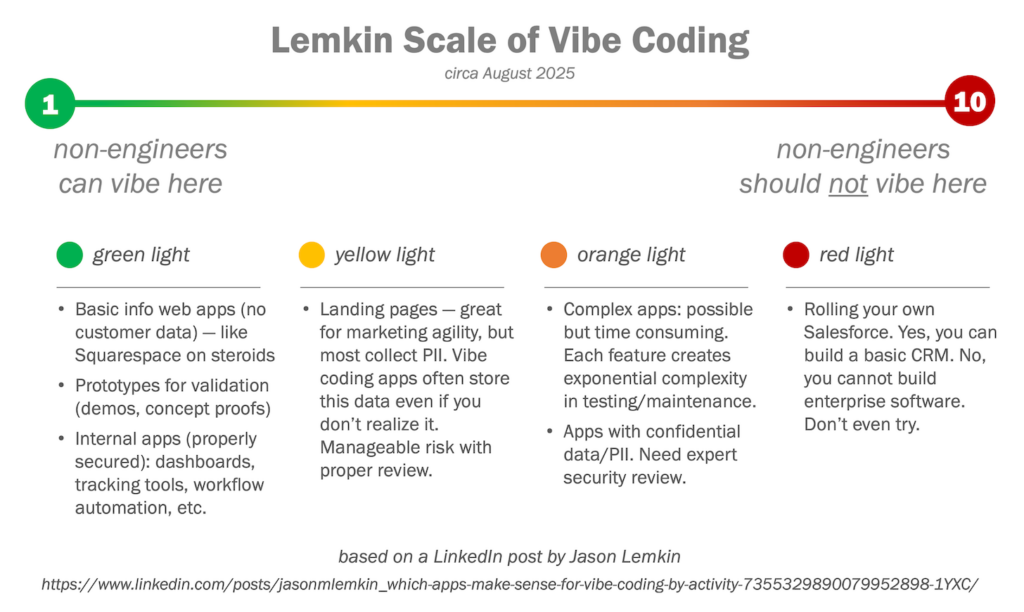
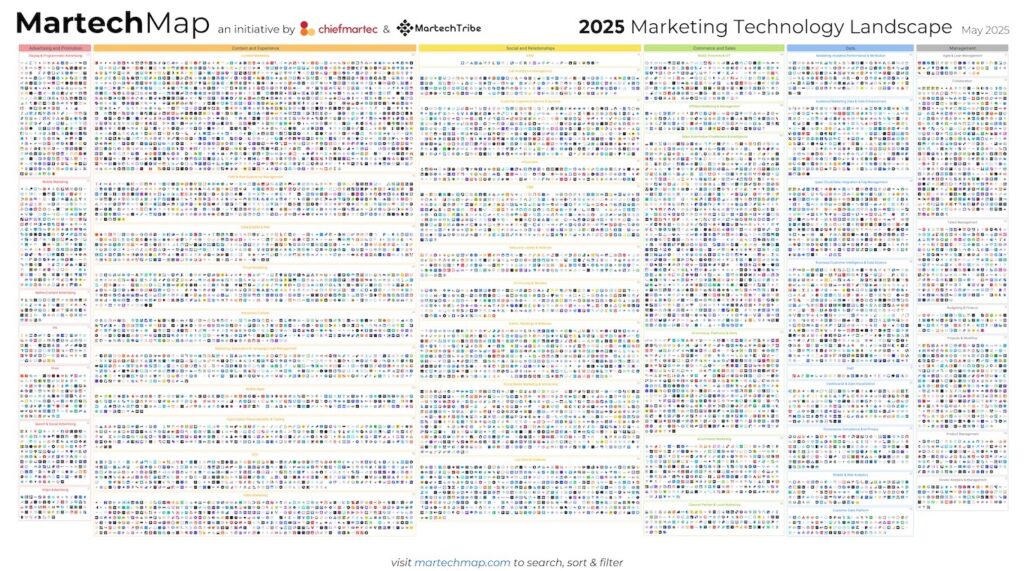
Classy product integrations are hard to implement.